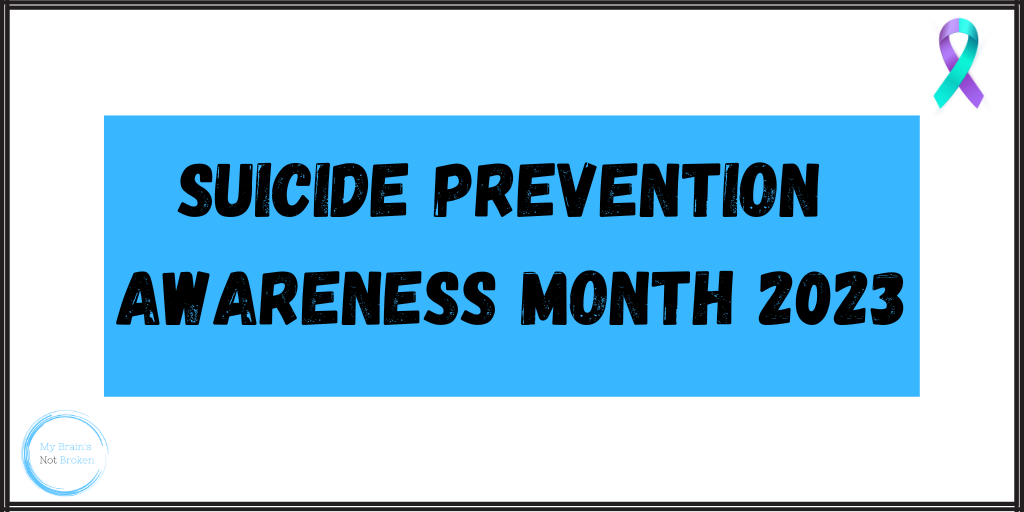
CW: This post discusses suicide and suicide awareness.
Suicide Prevention Awareness Month is extremely important for many reasons, but one of the most important is that it is an opportunity to have open discussions about suicide and suicide prevention. It is also a good time to share resources for those who may need them, as well as for people looking to share information with their loved ones and communities. Over the years, I have been able to put together an extensive list of resources related to suicide prevention, which is what I would like to share again this year.
Below are some links and descriptions to some of the most popular suicide prevention resources, websites, and phone numbers. If you have any questions about anything I have listed or would like to know more, please contact us to get the information you need.
National Suicide Prevention Lifeline
For anyone who missed it, 988 is now the three-digit dialing code that directs callers to the 988 Suicide & Crisis Lifeline. Last year, Lifeline moved from the previously recognized 10-digit number of the National Suicide Prevention Lifeline to the three-digit 988 Lifeline (the previous number 1-800-273-TALK (8255) will continue to operate). Lifeline provides “free, confidential support for people in distress, prevention and crisis resources for you or your loved ones, and best practices for professionals.” This suicide prevention center offers more resources than just the hotline: there’s a online chat if you can’t talk on the phone, as well as specific resources for veterans, LGBTQ+, attempted survivors, and other groups of people who may be at risk.
Crisis text line
Talking on the phone isn’t always the best option, and that’s where the Crisis Text Line can help. By texting the word “TALK” to 741741, you can have a confidential text conversation with someone. The Crisis Text line’s first priority “is to help people move from a hot moment to a cold calm by guiding them to create a plan to stay safe and healthy.”
Suicide prevention Resource Center
The SPRC is the only federally supported resource center specifically on suicide prevention and offers information on the best techniques and approaches for suicide prevention. This site is especially helpful in some of the training they offer, including online courses and webinars.
The Trevor Project
Founded specifically to focus on suicide prevention among youth in the LGBTQ+ community, The Trevor Project offers several free resources to immediately help those in need, including the Trevor Lifeline. (1-866-488-7386), Trevor Chat, Trevor Text and Trevor Space (you can access all of them through your ‘Get help now’ page).
Veteran Crisis Line
Like many of the resources offered here, the Veterans Crisis Line offers a Confidential hotline, online chat and text support.. Another important resource this crisis line offers is that after a call or conversation, you can be referred to a Suicide Prevention Coordinator at that person’s local VA medical center.
SAMHSA National Helpline
The Substance Abuse and Mental Health Services Administration (SAMHSA) national helpline can provide more helpful support not only to people struggling with their mental health but also substance abuse (or both). The helpline highlights that they answer calls in both English and Spanish.
trans lifeline
Trans Lifeline was founded in 2014 as a peer-to-peer crisis support hotline; is a “trans-led organization that connects trans people to the community, support and resources they need to survive and thrive.” Your peer support hotline (877-565-8860) is available from 10am to 4pm EST in the US and is administered and for trans people.
Additional Resources
In addition to these hotlines, other phone numbers you should know about include RAINN’s National Sexual Assault Hotline (1-800-656-4673) and the National Teen Dating Abuse Hotline (1-866-4673). 331-9474). If you are looking to connect with local resources, I would also look for local helplines and facilities in your area. Knowing where a local clinic, mental health center, or hospital psychiatric unit could save lives, especially when doing that research isn’t necessary during a crisis.
When we share information like this publicly, we draw attention to the many ways people can be supported or feel heard during their struggles. The more information we share, the better prepared we will be in the fight against suicide.
During Suicide Prevention Awareness Month, it is important to share as many resources as possible; If you know of any resources that aren’t listed here, please share them in the comments!








